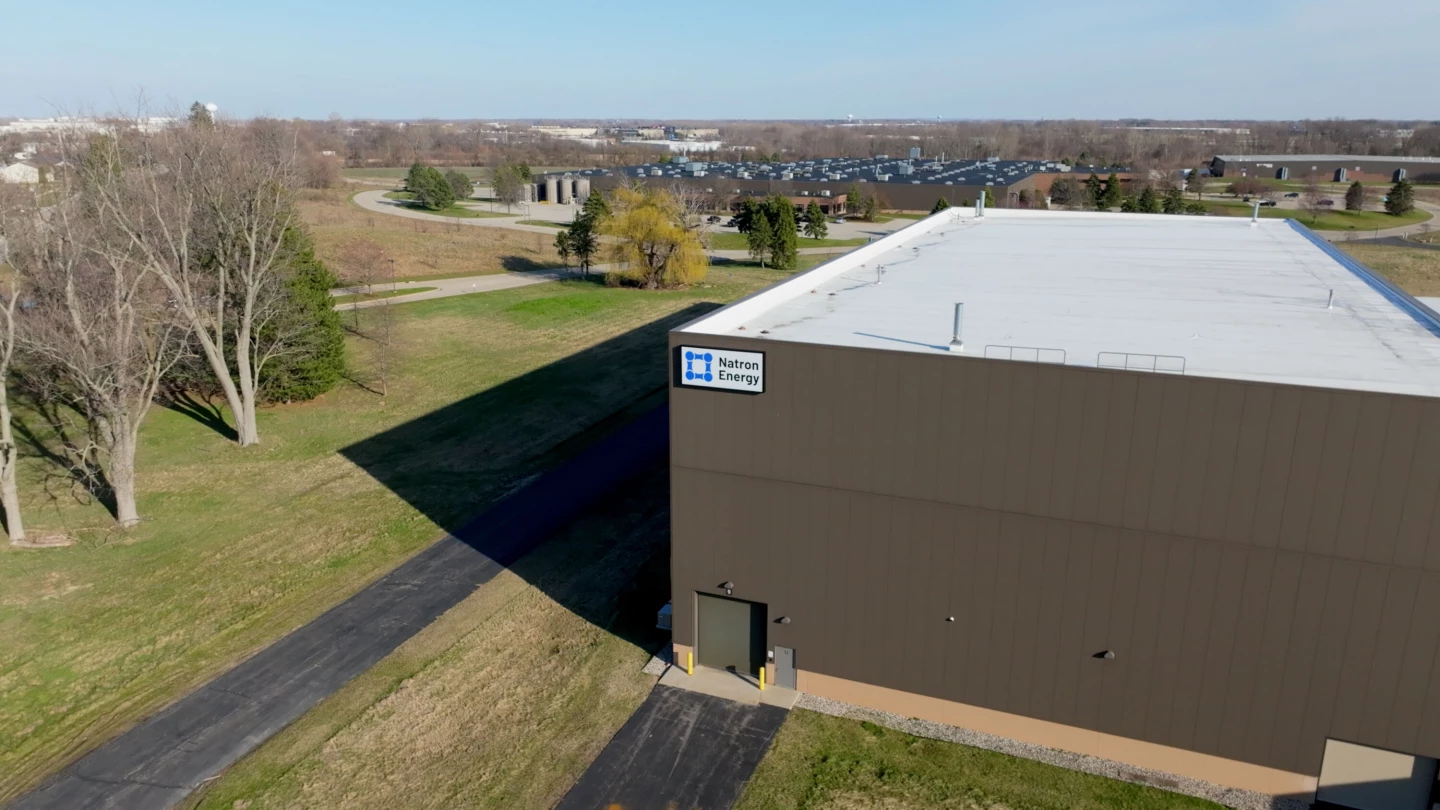Two years ago, sodium-ion battery pioneer Natron Energy was busy preparing its specially formulated sodium batteries for mass production. The company slipped a little past its 2023 kickoff plans, but it didn't fall too far behind as far as mass battery production goes. It officially commenced production of its rapid-charging, long-life lithium-free sodium batteries this week, bringing to market an intriguing new alternative in the energy storage game.
Not only is sodium somewhere between 500 to 1,000 times more abundant than lithium on the planet we call Earth, sourcing it doesn't necessitate the same type of earth-scarring extraction. Even moving beyond the sodium vs lithium surname comparison, Natron says its sodium-ion batteries are made entirely from abundantly available commodity materials that also include aluminum, iron and manganese.
Furthermore, the materials for Natron's sodium-ion chemistry can be procured through a reliable US-based domestic supply chain free from geopolitical disruption. The same cannot be said for common lithium-ion materials like cobalt and nickel.
Sodium-ion tech has received heightened interest in recent years as a more reliable, potentially cheaper energy storage medium. While its energy density lags behind lithium-ion, advantages such as faster cycling, longer lifespan and safer, non-flammable end use have made sodium-ion an attractive alternative, especially for stationary uses like data center and EV charger backup storage.
Founded in 2013, Natron has been one of the pioneers in this new wave of sodium-ion research and innovation. And while most sodium-ion designs remain in the laboratory, Natron has switched on one of the first major production operations globally. It celebrated the official production kick-off earlier this week with a ribbon-cutting ceremony at its Holland, Michigan manufacturing facility, calling it the first-ever commercial-scale production of sodium-ion batteries in the US.
"Sodium-ion batteries offer a unique alternative to lithium-ion, with higher power, faster recharge, longer lifecycle and a completely safe and stable chemistry," Natron founder and co-CEO Colin Wessells said at the event. "The electrification of our economy is dependent on the development and production of new, innovative energy storage solutions. We at Natron are proud to deliver such a battery without the use of conflict minerals or materials with questionable environmental impacts."

Natron says its batteries charge and discharge at rates 10 times faster than lithium-ion, a level of immediate charge/discharge capability that makes the batteries a prime contender for the ups and downs of backup power storage. Also helping in that use case is an estimated lifespan of 50,000 cycles.
We haven't seen a weight-based energy density figure from Natron itself, but a 2022 article from Chemical & Engineering News put its sodium-ion batteries at 70 Wh/kg, around the very bottom of the sodium-ion energy density scale. That aligns well with the company's stationary-only business plan, as sodium-ion batteries being pursued for potential mobility use have more than double that density. CATL showed a 160 Wh/kg sodium-ion battery in 2021 and has plans to increase that density over 200 Wh/kg to better meet the needs of electric vehicles.
Natron's plans call for the Holland facility to crank production up to 600 megawatts annually at full tilt, serving as a model for future gigawatt-scale facilities. In the two years since we last looked at Natron's plans, AI has grown a whole lot more power-hungry so it's not surprising the company's initial target is AI data storage centers, where it's fast-cycling batteries could become an essential power management tool. It plans to begin the first deliveries in June.
Natron intends to expand its focus to other industrial power markets in the future, mentioning EV fast-charging and telecommunications as targets.
Source: Natron






